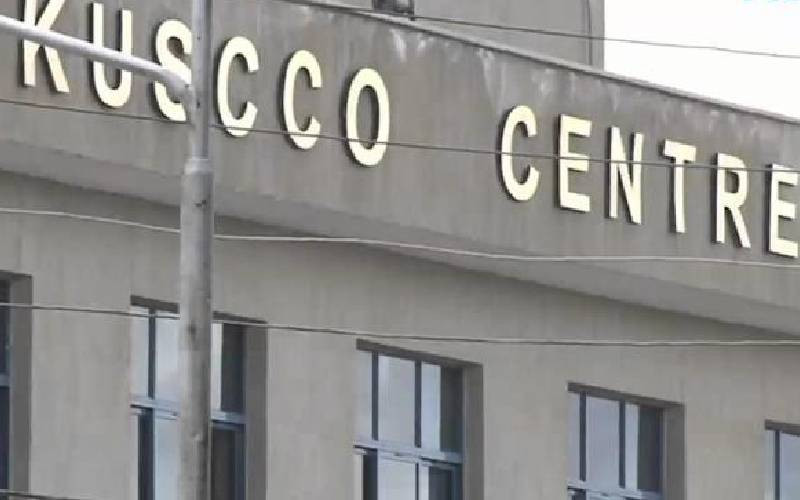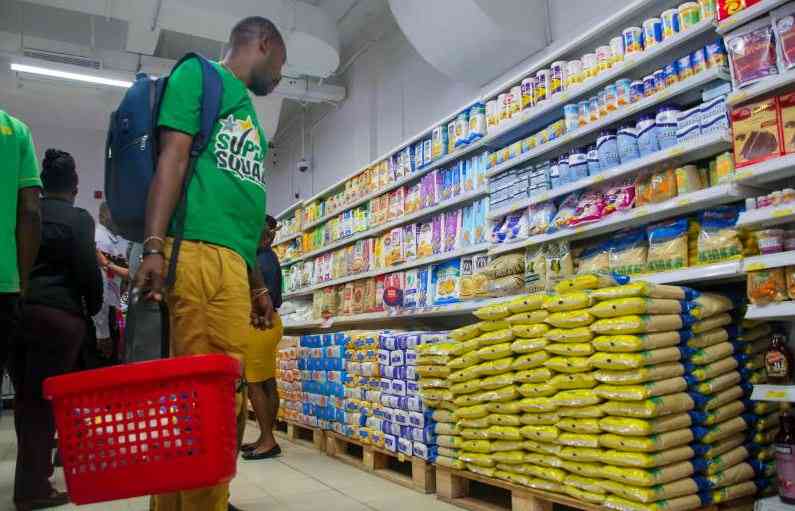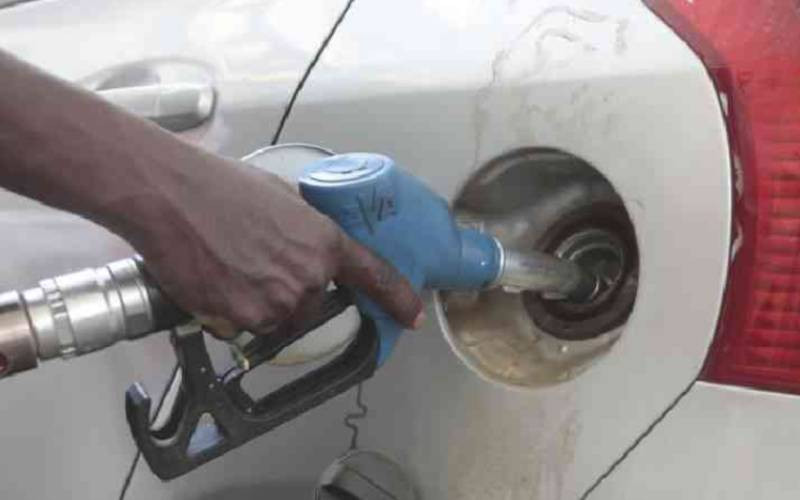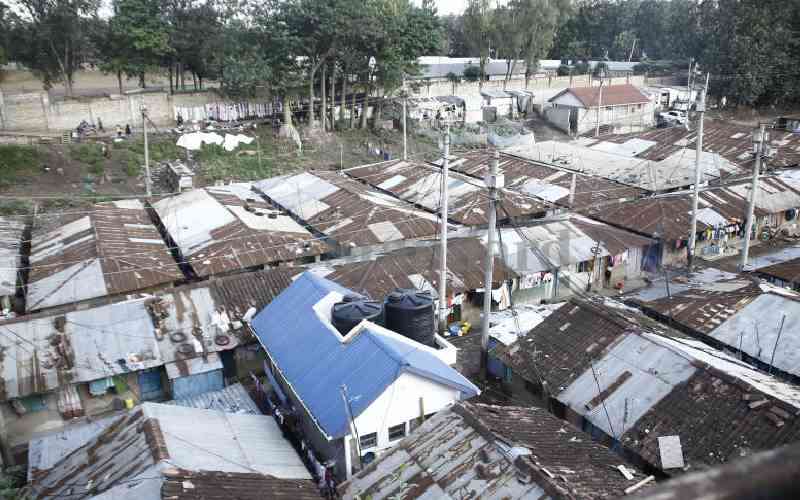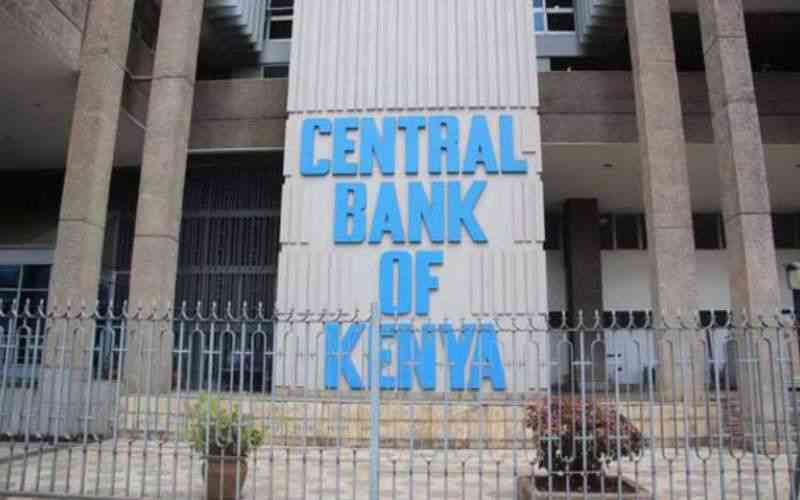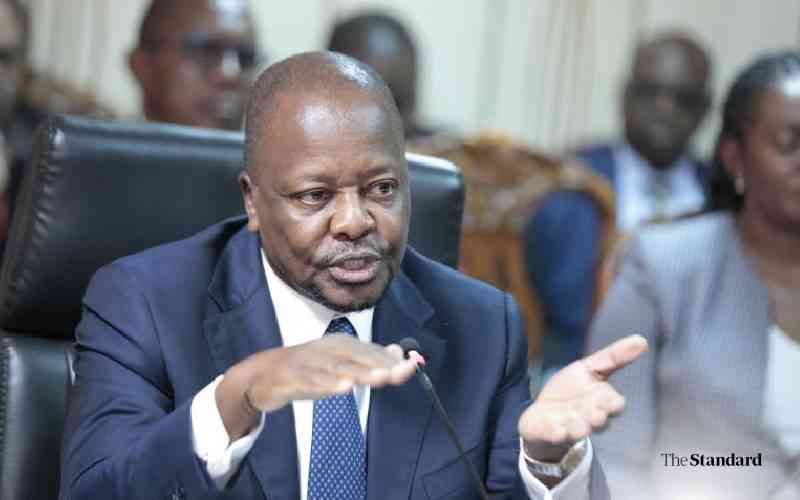
The Ministry of Agriculture wants value-added tax (VAT) on agricultural inputs and processing of commodities to be zero-rated to increase competitiveness of Kenya's products.
Agriculture Cabinet Secretary Mutahi Kagwe has said that reviewing and harmonising of the tax regime around import duty, value added tax (VAT), exercise duty for agricultural related inputs, primary agro-processing and packaging materials will enhance competiveness of the sector.
The CS also called for zero rating of VAT on machinery and packaging materials used in agro-processing be zero-rated to encourage value addition.
“All agricultural pesticides and fertilizers should be reverted to zero rating as opposed to tax exempt and all direct agricultural inputs like seed that are under standard tax rate of 16 per cent be also put under zero rating,” he said.
Kagwe made the remarks Tuesday when he appeared before the National Assembly Committee on Agriculture to discuss the budget estimates for the 2025-26 financial year.
As far as marketing of export crops is concerned, the CS made reference to tea saying the proposal at hand is that it should be reclassified as a food item and therefore be zero-rated on VAT in order to not only increase its local consumption but also spur value addition.
The CS also made proposals to merge the buyers and packers registration categories in the tea industry regulations to encourage value addition for exports.
He also proposed an increase in the import duty for packed tea imports from the current 25 per cent to 50 per cent or alternatively, introduce an import levy on packed tea imports.
He proposed exemption of tea imports for re-exports from the annual certificate of product conformity requirements by Kenya Bureau of Statistics (KEBS).
“It is our prayer that this committee considers our submission and our unfunded projects even as we operate under tight fiscal framework,” the CS urged.
He said the ministry’s total budgetary allocation is Sh58 billion, comprising Sh22.3 billion for recurrent and another Sh35.85 billion for development.
The CS, however, said the required amount for recurrent expenditure for the livestock development department was Sh6.7 billion against an allocation of Sh5 billion, while that of agriculture department was about Sh20.7 billion against an allocation of Sh17.3 billion.
This brings the total to Sh22.3 billion against a requirement of Sh27.4 billion for the recurrent expenditure.
As far as development is concerned, the CS said that the Livestock development department required Sh22.7 billion against an allocation of Sh4.9 billion while the Agriculture department received an allocation of Sh30.9 billion against a requirement of Sh50.7 billion.
Stay informed. Subscribe to our newsletter
The total allocation for the development component for both State departments amounts to Sh35.8 billion against a requirement of Sh73.4 billion.
The CS also appraised the committee on the priorities the ministry has set for the Agriculture department which include improving efficiency of the sector through utilization of technology across all value chains, for instance, development of crop specific organic fertilizers.
“Under the State Department for Agriculture, the key priorities will include developing and rolling out post-harvest initiatives and programs to reduce losses among them enhance development of access roads, purchasing of dryers to manage levels of aflatoxins in cereals and enhance governance of farmers cooperatives,” the CS told the committee.
He also said that the department will seek to enhance strategic food reserves through additional funding of Sh2 billion to cover all cereal produce.
Other priorities that the CS cited include revitalization of the tea sub sector by promotion of tea factories through various methodologies including Kenya National Trading Company (KNTC) financing as well as promoting tea common user facilities and opening of the tea auctions to increase the number of players in the sector market access.
The Ministry will also move to strengthen agricultural mechanization through development of ten appropriate technologies and incubation of 120 Small and Medium Enterprises, food security and crop diversification through provision of 330,000 assorted fruits seedlings and 250MT of drought tolerant seeds
It will also increase earnings for sugarcane farmers, with 11 Cane Testing Units (CTUs) being maintained and upgraded under sugar reforms in addition to rolling out of new sugar seeds varieties which are of high yield, diseases resistant with shorter maturity period.
For the Livestock department, the CS said priorities include implementation of the Animal Traceability System (ANITRAC) through development of livestock identification and traceability system to trace the origin of livestock and livestock products in the market.
The Ministry will also prioritize on Kenya Livestock Masterplan, which will focus on livestock data collection to inform investment options for the various livestock value chains.
For the Kenya Leather Industrial Park-Kenanie, the Ministry is expected to incentivize further private sector investment in the industry by providing required infrastructure support of affordable industrial land, efficient common effluent treatment plants, sustainable industrial power and water supply.
The CS said that the Ministry will prioritize completion of policy and legislative reform including enactment of Livestock Bill, publication of the Animal Health Bill, Animal Welfare and Protection Bill, Veterinary Practice and Medicinal Products Bill, Dairy Industry Bill; Animal Production Professionals and Technicians Bill as well as processing and dissemination of the Livestock and Veterinary policies.
